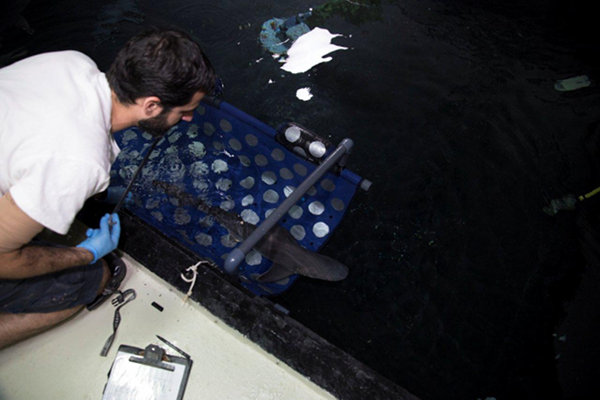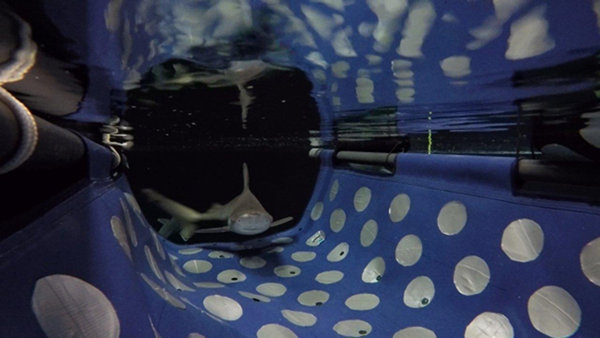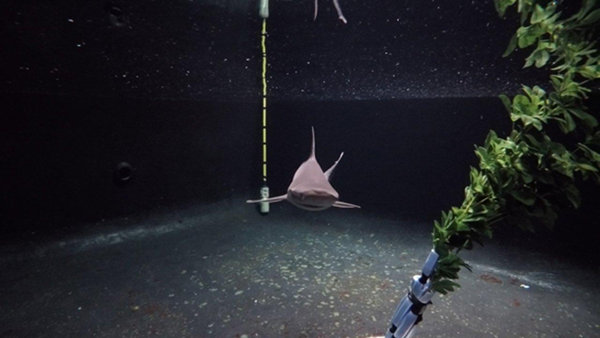The best zoo in Europe and #2 in the world, according to TripAdvisor, is once again celebrating. The sandbar shark babies born in the Aquarium of Loro Parque are now turning exactly one year of age and are full of health and strength. Abel, Airam, Liam and Juan, the first specimens of this species to be born under human care in the entire region of the Canary Islands, will be eventually heading to the soon-to-be-open gran aquarium Poema del Mar in Las Palmas de Gran Canaria. This innovative project of Loro Parque promises to convert into one of the most impressive aquariums in the world and has already been recognized by the regional authorities to be of strategic interest for the Canary Islands.
Their diet is based on white and oily fish, unpeeled prawn and cephalopods and the feeding occurs 5 times a week. Currently, the young sharks consume an equivalent of 3% of their weight, a diet that allows them to maintain steady levels of growth and health. Despite being so young they are already forming part of the Aquarium’s most advanced and innovative programs – the shark training program. These voluntary exercises under the supervision of the aquarium’s personnel allow for the stress-free procedures with the animals, for example weighing, measuring or medical check-ups.
Sandbar sharks can live up to 45 years and they only breed once every two years. They are viviparous animals, so the pups are born completely developed. Each time, a female can bring to life 7 to 10 specimens.
Here in Loro Parque, these sharks are perfect ambassadors to raise awareness about the hazards and problems that the marine species encounter in the wild. Already today, 11 shark species appear on the list of endangered species, and 100 million die each year as a result of human consumption.
Having inhabited this planet for over 400 million years, these amazing animals are now facing extinction and mainly due to the human actions. Therefore, these young sharks will serve an important role to make us, humans, think about the way we consume natural resources and thus, not let these animals disappear from our planet.













